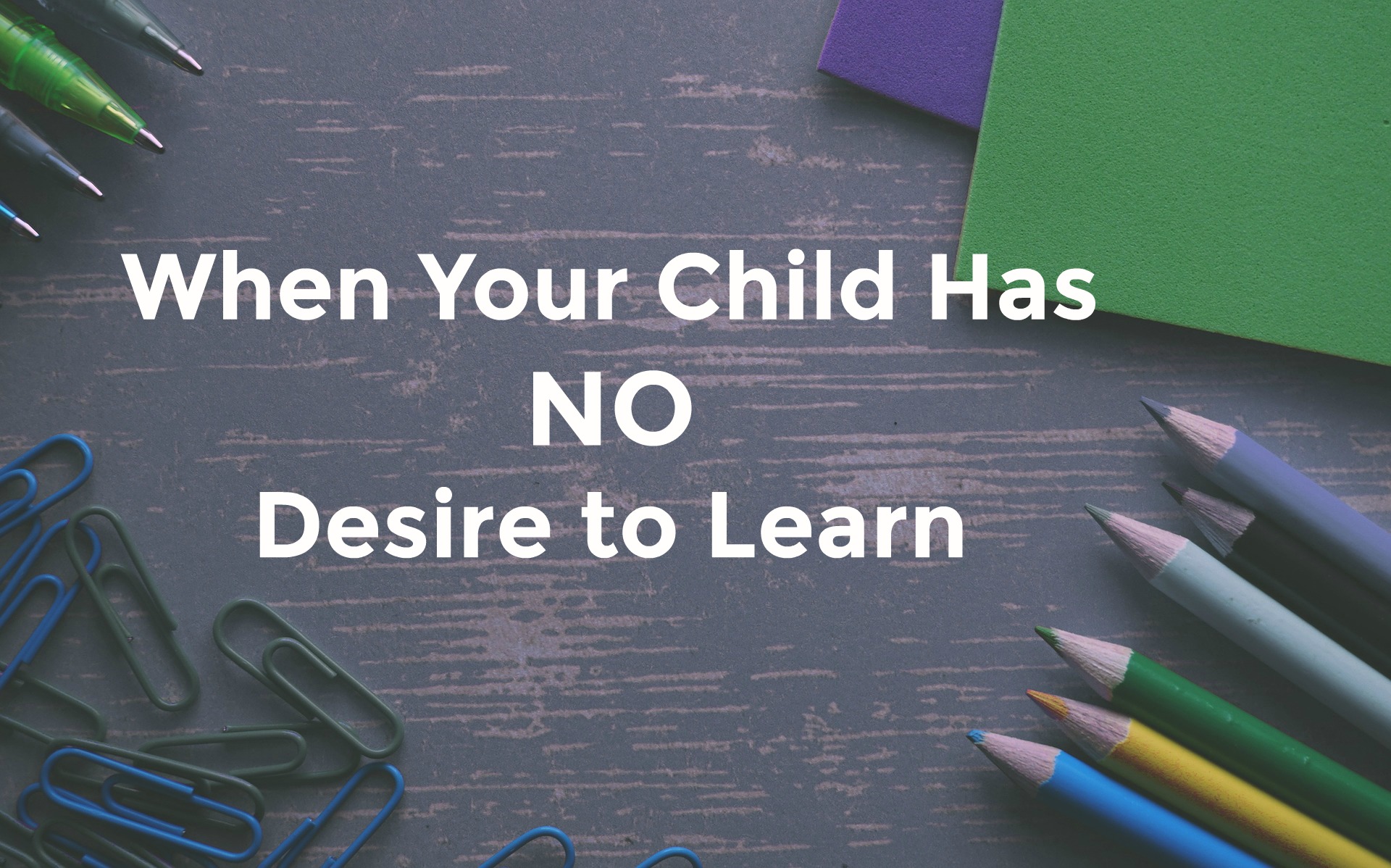
The secret to getting ahead is getting started. ~ Mark Twain
One of my children loved school and learning. This child read the dictionary for fun.
And then my other child. This child hid our schoolbooks. hid my copy of The Well Trained Mind and did everything he could think of to get out of school work. He simply was not interested. I finally sat him down and told him that he was required by law to be educated and that I could go to jail if I did not provide him with an education. That helped a little, but he still fought me every step of the way. So I know your pain. Anyway, there are some things you can do to make learning more bearable.
- Have your pediatrician perform a complete physical including vision and hearing tests. Sometimes reading is difficult because your child is having difficulty seeing. And they may be having headaches for a valid reason. Sometimes phonics is difficult because your child can’t hear the differences in sounds. Sometimes there is a physical ailment that may be interfering with learning. Sometimes your child is ADD or ADHD and has extreme difficulty staying on task. Once your child passes a physical, tell your child that the Dr. checked him out and there is no physical reason he can’t do his work.
- Give your child choices. Let her decide if she wants to do math or reading first. Does he want to learn about snakes or electricity? Would she rather write on paper or a white board?
- Make a daily schedule and stick to it. Let your child help you make the schedule. Be firm. Start school at the same time every day.
- Eliminate all excuses to waste time. Have her use the bathroom, get a drink of water and eat a snack before he begins working. Put his phone on the kitchen counter. Make sure you can see him while he is working.
- Use a timer and take breaks. Set it for 15-30 minutes and make it a game. See how much can she do in a particular amount of time? Let him take a wiggle break or stand up and stretch every 15 to 30 minutes. Consider a short recess for hard work. How about letting your teen have a short phone break when they finish their work in a subject.
- Don’t let it become a power struggle. Simply let him know there are consequences for not completing his work. Stick to it and be firm. Let her complain a few minutes to get it out of her system. Then tell her, ” Ok, I heard you, you voiced your opinion and your work must be completed.” Stick to it and be firm.
- Set goals. Maybe they can have a friend over on Saturday if their work is completed . Stick to it and be firm .Set goals.
- Stay positive. This is hard. When your child is not cooperating, you may want to scream, but don’t. Who wants to be around someone who fusses all the time. And I’ll tell you a little secret, sometimes your kids will aggravate you on purpose to see your reaction, especially boys.
- Watch for frustration in your child. Kids who don’t like school get easily frustrated and no one does well when they are frustrated. Take a break before your child gets frustrated!
- Teach your child that it’s ok to fail and that failure is part of life. Getting a bad grade is not failure. It simply means they need to spend a little bit more time learning that particular concept. Nelson Mandela said, ” It always seems impossible until it’s done.”
- Don’t give in. Don’t accept excuses and DON’T ARGUE! Kids are good at knowing your weaknesses and will wear you down to get out of work.
- Let there be consequences for work not completed. Don’t let your child hold you hostage every evening. You have a life outside of homework and take privileges away if you child doesn’t finish his work in a timely manner. Maybe no phone or TV until work is complete. Maybe everyone else gets to play a game and your child has to complete his work before he can join in. Be creative with the consequences.
- Pray, pray, pray! I always tell parents to pray until their knees hurt and then pray some more
- Don’t give up. Be brave! If God wants you to homeschool, He will make a way. I won’t always be easy, but it will turn out well. After my child completed high school, he thanked me for not giving up on him and apologized for the way he acted as we went through our homeschooling journey.
I am happy to report that my child who hated learning is a lifelong learner. As an adult, he enjoys learning and enjoys reading. He reads non-fiction books as well as his Bible. He’s not much on fiction, but that’s ok. He also has a great vocabulary and has a vast wealth of knowledge.
You can do this, you can raise up a life long learner. I did it and so can you.
Galatians 6:9 states,
“Do not grow weary in doing good, for at the proper time we will reap a harvest if we do not give up.”
What about your child? Do you have a child who doesn’t have a desire to learn? How do you help your child? What about the mama of adult children. Would you share your experience?
Disclaimer: If you suspect that your child has a learning disability, seriously consider seeking additional help.

 Enter your information below to receive regular blog updates in your inbox!
Enter your information below to receive regular blog updates in your inbox!
Leave a Reply